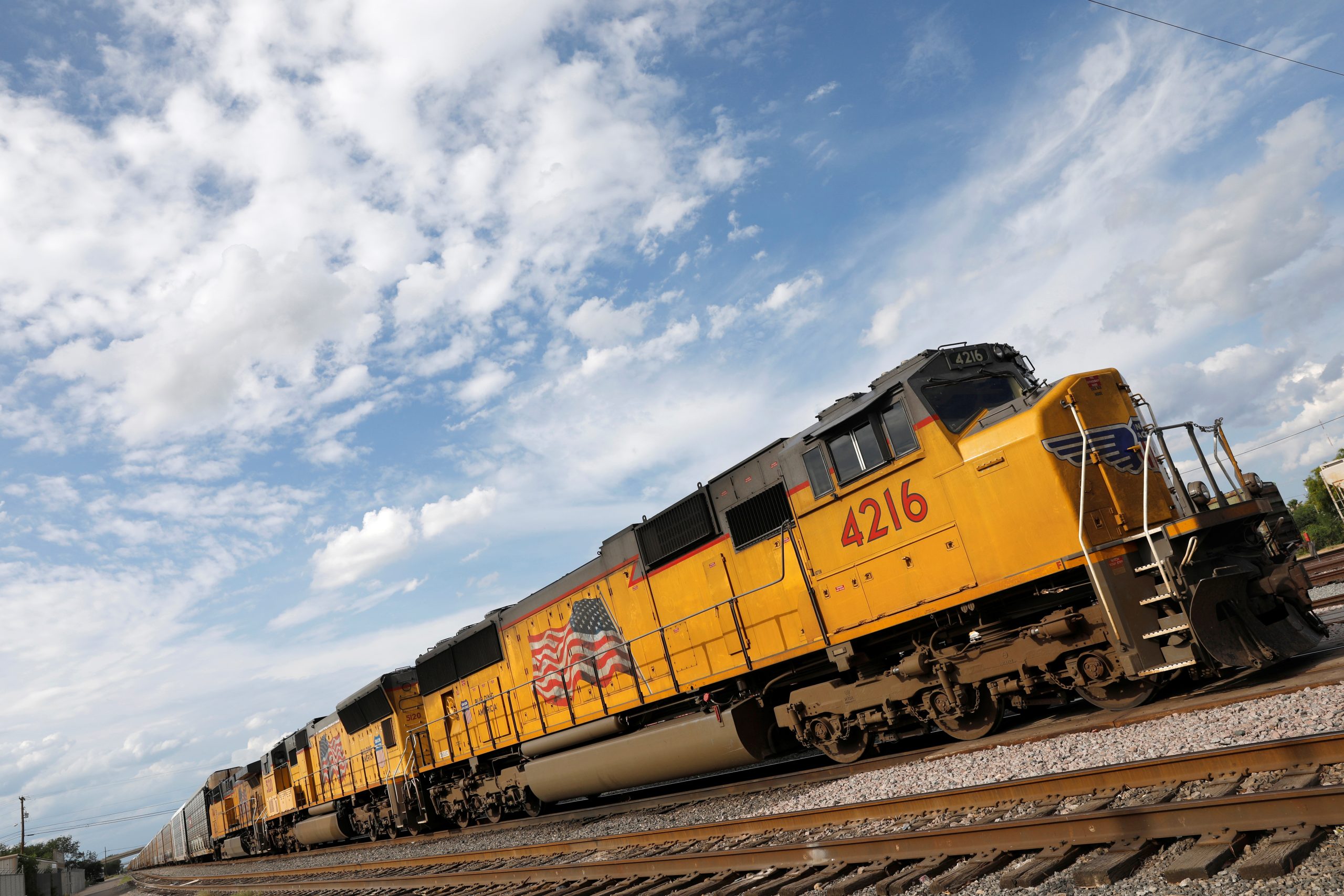
[elfsight_social_share_buttons id=”1″]
Biden administration officials, racing to avert a potential rail shutdown that could disrupt cargo shipments and impede food and fuel supplies, hosted labor contract talks on Wednesday as one of the smaller unions involved in the dispute rejected a deal.
Railroads including Union Pacific, Berkshire Hathaway’s BNSF, and Norfolk Southern have until a minute after midnight on Friday to reach tentative deals with three holdout unions representing about 60,000 workers before a work stoppage affecting freight and Amtrak passenger rail service could begin.
A union representing about 4,900 machinists, mechanics, and maintenance personnel said on Wednesday its members voted to reject a tentative deal.
Railroads have offered significant pay increases. Three of 12 unions, representing about half of the 115,000 workers affected by the negotiations, are holding out for better working conditions.
A shutdown could freeze almost 30% of U.S. cargo shipments by weight, stoke inflation, cost the U.S. economy as much as $2 billion per day, and unleash a cascade of transportation woes affecting the U.S. energy, agriculture, manufacturing, and retail sectors.
White House spokeswoman Karine Jean-Pierre told reporters aboard Air Force One that a shutdown of the freight rail system would be an “unacceptable outcome for our economy and the American people and all parties must work to avoid just that.”
The Labor Department in a statement said “the parties are negotiating in good faith and have committed to staying at the table” on Wednesday in a meeting hosted by Labor Secretary Marty Walsh.
President Joe Biden’s administration has begun making contingency plans to ensure deliveries of critical goods in the event of a shutdown. The stakes are high for Biden, who has vowed to rein in soaring consumer costs ahead of the November elections that will determine whether his fellow Democrats maintain control of Congress.
If agreements are not reached, there could be union strikes or employer lockouts. But the railroads and unions also could agree to stay at the bargaining table, or the Democratic-led U.S. Congress could intervene by extending talks or establishing settlement terms.
House of Representatives Speaker Nancy Pelosi said it was not clear whether Congress would step in, noting that the main issue “is that there’s no sick leave for the workers and that’s a problem.”
“We’d rather see negotiations prevail so there’s no need for any actions from Congress,” Pelosi added.
Amtrak, which uses tracks maintained by freight railways, began cutting long-distance trains on Tuesday. Some commuter rail systems like Chicago’s Metra said they will begin halting some service on Thursday.
Industry groups are calling on Congress to help, saying a rail shutdown would hit as grain farmers prepare for harvest and consumers gear up for winter weather and Christmas holiday shopping.
Railroad customers have long complained that rail service is expensive and unreliable, with the industry’s decision to halt shipments of hazardous materials, refrigerated food, and general merchandise ahead of a potential shutdown making matters worse.
Rail hubs in Chicago and Dallas were already clogged and suffering from equipment shortages before the contract showdown. Those bottlenecks are backing up cargo at U.S. seaports by as much as a month. And, once cargo gets to rail hubs in locations such as Chicago, Dallas, Kansas City, and Memphis, Tennessee, it can sit another month or longer.
Package delivery giant United Parcel Service, one of the largest U.S. rail customers, said it is working on contingency plans. Automakers worry that a shutdown could extend vehicle buyer wait times, and food and energy companies are warning that additional service disruptions could create even sharper price hikes.
Copyright 2022 Thomson/Reuters
